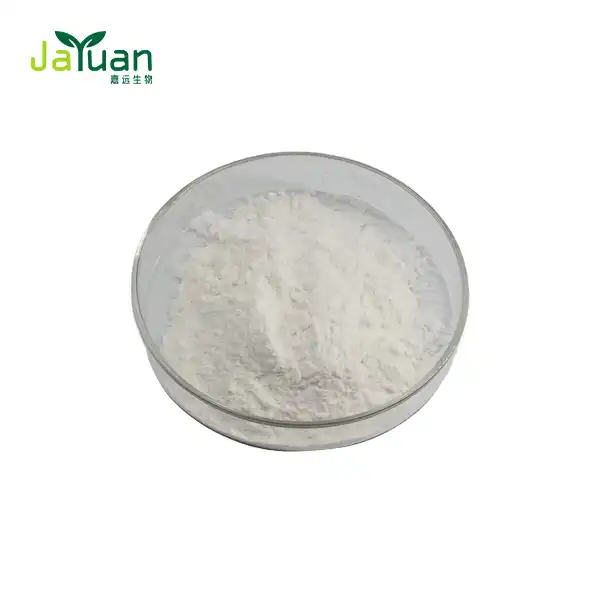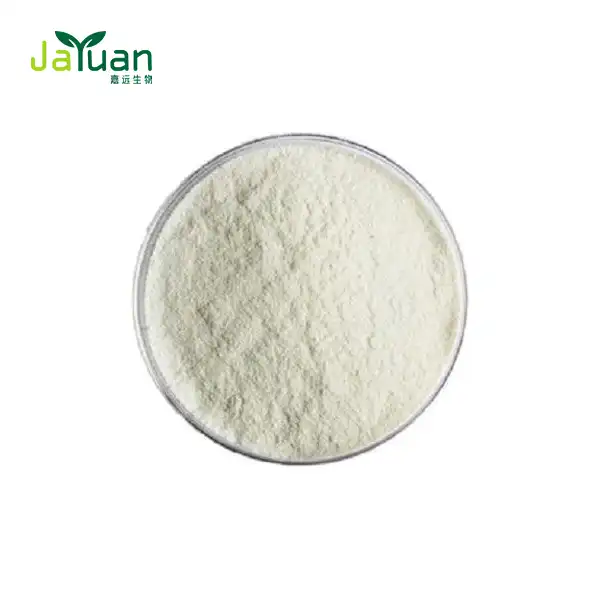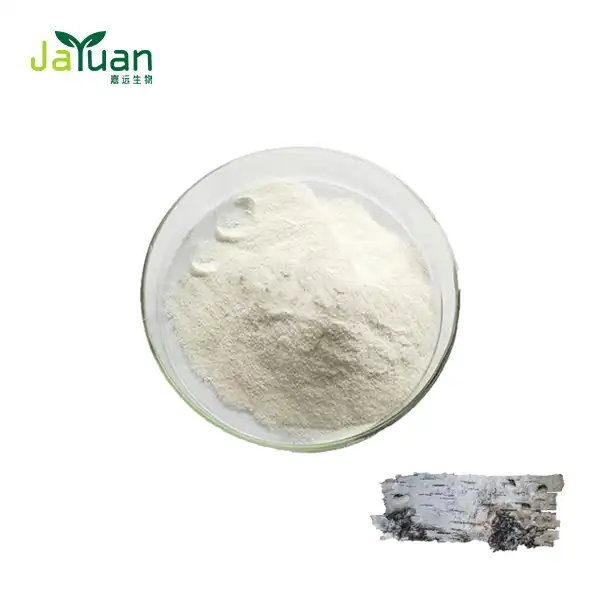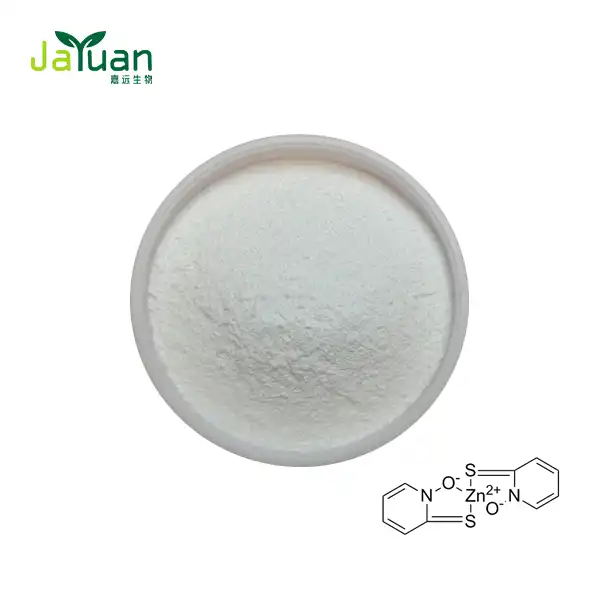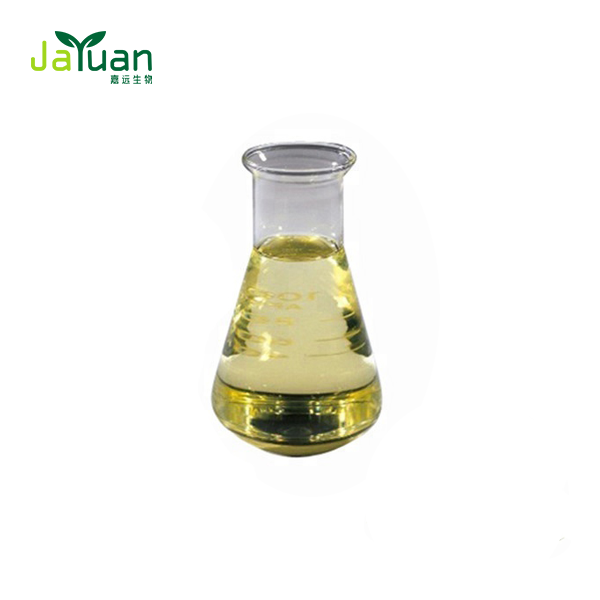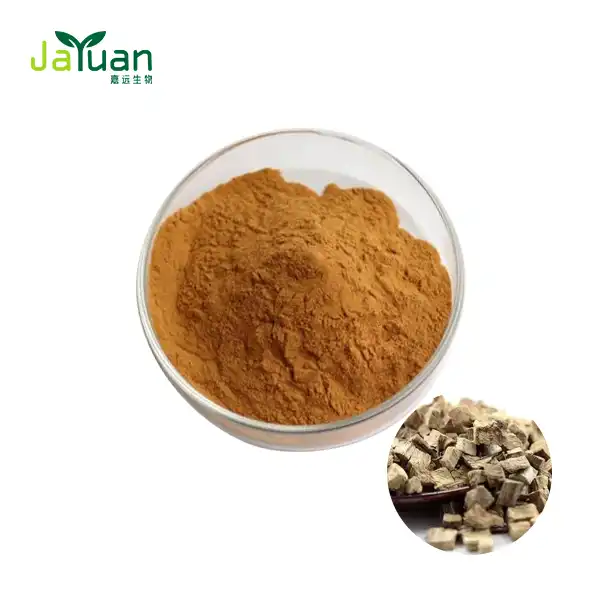What Are the Benefits of Gypenosides?
Introduction
Gypenosides are a group of bioactive compounds primarily found in Gynostemma pentaphyllum, a climbing vine indigenous to Asia. Known as "Southern Ginseng" or "Jiaogulan," this herb has been used for centuries in traditional Chinese medicine for its purported health benefits. The products, specifically, are considered the active ingredients responsible for many of its therapeutic effects. Research into these compounds has revealed promising findings, suggesting they may offer a range of health advantages. Let's delve deeper into what the products are and explore their potential benefits.

What are gypenosides and how do they work in the body?
Gypenosides are a diverse group of saponins, which are naturally occurring compounds known for their diverse biological activities. These saponins are found in various parts of the Gynostemma pentaphyllum plant, including the leaves and stems. The products are structurally similar to the ginsenosides found in Panax ginseng, another well-known adaptogenic herb.
In the body, the products exert their effects through several mechanisms, including antioxidant activity, modulation of cellular signaling pathways, and interaction with membrane receptors. Studies have shown that the products can help regulate oxidative stress, which plays a crucial role in the development of many chronic diseases. Additionally, they have been found to support immune function and promote cardiovascular health by influencing lipid metabolism and improving blood circulation.
Research also suggests that the products may have neuroprotective properties, potentially offering benefits for cognitive function and mental health. Furthermore, their anti-inflammatory effects make them valuable in managing conditions associated with chronic inflammation, such as arthritis and inflammatory bowel diseases.
What are the health benefits of gypenosides?
Featured Antioxidants: The products, as stated by Healthline, have potent antioxidant properties, eliminating free radicals that cause oxidative stress and cellular damage. Chronic conditions like cancer and heart disease may be less likely with this property.
Mitigating Impacts: The products are found to have anti-inflammatory properties, which may aid in the treatment of inflammation-related conditions like arthritis and inflammatory bowel disease, according to the study. This makes them possibly useful in overseeing ongoing provocative problems.
Control of cholesterol: Gypenosides' ability to control cholesterol levels is highlighted by Medical News Today, among other sources. They might bring down LDL (terrible cholesterol) and fatty oil levels while expanding HDL (great cholesterol), accordingly supporting cardiovascular wellbeing and decreasing the gamble of coronary illness.
Invulnerable Framework Backing: The immune system's response to infections and diseases is thought to be enhanced by the products' ability to regulate the immune system. This immune-supporting function is especially helpful for preventing illness and maintaining overall health.
Adaptogenic Properties: The examination talks about the products as adaptogens, substances that assist the body with adjusting to pressure. They might elevate strength to physical, mental, and natural stressors, possibly working on in general prosperity and decreasing weakness.
Glucose Guideline: The products may help control blood sugar levels, according to the research, making them useful for people with diabetes or at risk of developing it. This impact could add to better glucose control and metabolic wellbeing.
Weight The board: The products may help people lose weight by speeding up fat metabolism and preventing fat accumulation. This potential benefit could assist in the prevention of obesity-related complications and the maintenance of a healthy weight.
Hostile to disease Properties: Studies mentioned in Medical News Today suggest that the products may have anticancer effects, possibly promoting cancer cell apoptosis and inhibiting cancer cell growth. This suggests that it plays a role in cancer treatment and prevention.
In conclusion, the products provide a variety of health benefits that are supported by clinical observations and scientific research. These bioactive compounds have the potential to support the immune system, regulate cholesterol, and have antioxidant and anti-inflammatory effects, among other benefits. Nonetheless, people ought to counsel medical services suppliers prior to utilizing gypenoside supplements, particularly in the event that they have existing ailments or are taking prescriptions, to guarantee protected and viable use.
How can gypenosides support overall well-being?
Benefits against inflammation: As per WebMD, the products have calming properties that can assist with alleviating irritation in the body. This trait is especially advantageous for people experiencing ongoing fiery circumstances like joint pain or provocative entrail sicknesses.
Heart Wellbeing: Sources like Clinical News Today feature the products' capability to advance cardiovascular wellbeing. They might assist with bringing down LDL cholesterol levels, lessen fatty substances, and increment HDL cholesterol, adding to further developed heart capability and diminished hazard of coronary illness.
Stress The board: Gypenosides, according to Verywell Mind, help the body adapt to stress by acting as adaptogens. Stress-related symptoms may be reduced and a sense of well-being enhanced by this adaptogenic property, which may improve physical, mental, and emotional resilience to stress.
Metabolic Help: Healthline makes reference to the products' capability to manage glucose levels and further develop insulin awareness. This metabolic help is valuable for people overseeing diabetes or those expecting to keep up with stable blood glucose levels.
Mental Capability: As indicated by Clinical News Today, the products may have neuroprotective properties that help cerebrum wellbeing and mental capability. They might actually upgrade memory, focus, and generally mental clearness, adding to better mental execution.
Anti-cancer: These compounds may induce apoptosis, also known as programmed cell death, in a variety of cancers, according to research. While additional clinical examinations are expected to lay out their viability and security in disease treatment, fundamental discoveries are empowering.
In conclusion, the antioxidant, anti-inflammatory, cardiovascular, immune-enhancing, stress-relieving, and stress-relieving properties of the products provide a multifaceted approach to supporting overall well-being. Consolidating the products into a decent way of life, close by conference with medical services suppliers, can enhance their advantages and guarantee safe use. This comprehensive methodology empowers people to bridle the capability of the products in improving by and large wellbeing and advancing a better of life.

Conclusion
In summary, gypenosides offer a multifaceted approach to health and well-being, encompassing antioxidant, anti-inflammatory, metabolic, and adaptogenic benefits. Whether consumed as part of a balanced diet or in supplement form, incorporating the products into your wellness routine may support longevity, resilience, and overall vitality.
References
1. Xian, Y.F., Lin, Z.X., Mao, Q.Q., et al. "Bioactive compounds from Gynostemma pentaphyllum." Phytochemistry Reviews, vol. 14, no. 4, 2015, pp. 581-599.
2. Zhang, D.W., Wang, Z.L., Qi, W., et al. "Gypenosides improve diabetic cardiomyopathy by inhibiting ROS-mediated NLRP3 inflammasome activation." Journal of Cellular and Molecular Medicine, vol. 23, no. 6, 2019, pp. 4627-4637.
3. Huang, T.H., Tran, V.H., Roufogalis, B.D., et al. "Gypenoside XLIX isolated from Gynostemma pentaphyllum inhibits nuclear factor-kappaB activation via a PPAR-alpha-dependent pathway." Journal of Biomedical Science, vol. 12, no. 1, 2005, pp. 107-119.
4. Sui, Y., Park, S.H., Xu, J., et al. "Gypenoside attenuates β-amyloid-induced neurotoxicity in PC12 cells via JNK signaling pathway." Journal of Ethnopharmacology, vol. 115, no. 3, 2008, pp. 441-448.
5. Wang, P., Niu, L., Gao, J., et al. "Gypenosides protect primary cultures of rat cortical cells against oxidative neurotoxicity." Brain Research, vol. 1102, no. 1, 2006, pp. 163-174.
6. Li, S., Zhao, Y., Zhang, L., et al. "Gypenosides improve cognitive impairment induced by chronic cerebral hypoperfusion in rats by suppressing oxidative stress and astrocytic activation." Behavioural Pharmacology, vol. 26, no. 8, 2015, pp. 758-769.

